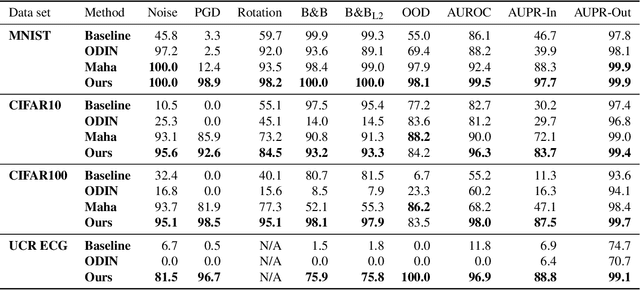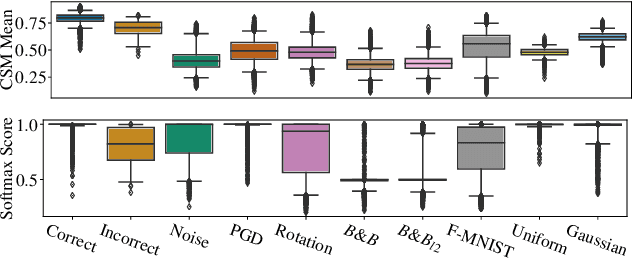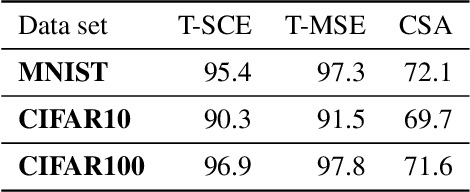Identifying Untrustworthy Predictions in Neural Networks by Geometric Gradient Analysis
Paper and Code
Feb 24, 2021



The susceptibility of deep neural networks to untrustworthy predictions, including out-of-distribution (OOD) data and adversarial examples, still prevent their widespread use in safety-critical applications. Most existing methods either require a re-training of a given model to achieve robust identification of adversarial attacks or are limited to out-of-distribution sample detection only. In this work, we propose a geometric gradient analysis (GGA) to improve the identification of untrustworthy predictions without retraining of a given model. GGA analyzes the geometry of the loss landscape of neural networks based on the saliency maps of their respective input. To motivate the proposed approach, we provide theoretical connections between gradients' geometrical properties and local minima of the loss function. Furthermore, we demonstrate that the proposed method outperforms prior approaches in detecting OOD data and adversarial attacks, including state-of-the-art and adaptive attacks.
 Add to Chrome
Add to Chrome Add to Firefox
Add to Firefox Add to Edge
Add to Edge